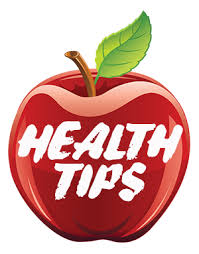There are many causes that can lead to coughing, and often result from health problems, in addition to some causes, so the cough can be classified into different types according to their cause.
Coughing is a protective mechanism to clear the airway in the lungs. Coughing can be caused by many respiratory health problems.
Although it is difficult to determine the type of cough when infected, but there are some key differences that can help to know the cause and type of cough.
1. Cough wet
A wet cough reflects sinusitis or lung mucus, usually wet, accompanied by ringing or wheezing, as well as shortness of breath.
Wet coughs are caused by influenza, colds, or bronchitis, and smoking causes wet coughs.
A wet cough usually disappears as the infection ends, but sometimes it can last for a long time, due to several reasons:
Chronic obstructive pulmonary embolism: Chronic obstructive pulmonary embolism leads to wet coughing and difficulty breathing. Frequent respiratory infections and increased phlegm.
Posterior nasal drip: posterior nasal drip can be caused by a sinus infection, or a cold, where mucus drips on the larynx, which increases the wet cough that prevents mucus from moving into the lungs.
Bronchiectasis: Another cause of wet coughing is that mucus accumulates and is difficult to remove from the lungs.
2. Dry cough
Cough that does not contain phlegm, and occurs as a reaction to irritation of the throat, and the multiple causes of dry cough to include:
Asthma: When dry cough occurs with shortness of breath and chest, it may be related to chest allergies and asthma. If the cough is caused by asthma, it will increase at night or during a terrible effort such as exercise.
Gastroesophageal reflux: where the muscle between the diaphragm and the stomach is lax and weak, causing acid reflux from the stomach, irritation of the lining of the esophagus and coughing.
In case of coughing due to acid reflux, it is observed when lying down or after eating.
3 - cough resulting from medicines
Some medicines cause dry cough when taken, this is temporary during the period of taking the drug, but if it is a medicine for chronic disease, only continue dry cough until you stop taking the medicine.
Angiotensin-converting enzyme inhibitors for the treatment of hypertension are among the most prominent of these drugs, and cough begins to appear a few days after taking the drug.
In this case, talk to your doctor about replacing the medicine with another that does not cause coughing.
4. Dry cough that turns into damp
The cough can be dry at first, then turn into a wet cough with yellow or green mucus.
This type of cough is often caused by pneumonia.
It is usually accompanied by chills, fever, difficulty breathing and pain when breathing deeply.
In this case, the doctor prescribes an antibiotic to treat the problem, and chicken soup and hot drinks should be taken to relieve the cough.
5. Whooping cough
This is called pertussis because the coughing ends with a rooster, and the cough is severe.
The first symptoms of this type of cough are similar to common colds, which are stuffy and runny nose, eye tears, and fever.
Over time, however, the cough, pain and chest tightness increase during coughing.
People with pertussis suffer from persistent and painful coughing attacks, often affecting children.
Another type is called barking cough. The sound is like a bark. It results from a virus that has swollen the airways and can also affect adults.
By Dr Mahad Shah
Ms Productions














No comments:
Post a Comment